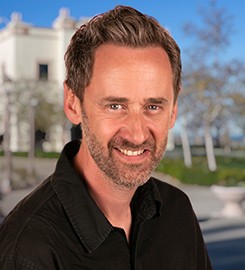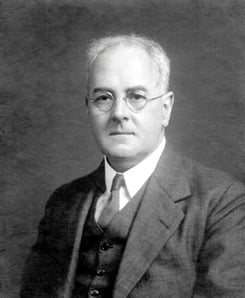Art or Science? A Closer Look at the Master's in Conflict Management and Resolution

Art or Science – A Closer Look at the Master's in Conflict Management and Resolution

When I see the word “color” it just looks wrong. So do the words “flavor”, “aluminum” and “recognize”. Whenever I see them I want to make corrections so that they read ‘colour’, ‘flavour’, ‘aluminium’ and ‘recognise’.
Even as I type this, I feel a sense of mild irritation as my laptop adds squiggly red lines under my perfectly acceptable British spelling. Having been born in and spent the vast majority of my life in the U.K., my time living in the United States has been one of the significant challenges to my genetic disposition to linguistic snobbery.
This has thankfully been challenged by many sources. All of this has helped me realise, or should I say realize, that what seems and looks wrong isn’t necessarily incorrect, it’s just unfamiliar.
What is Conflict Management and resolution? Why is it an MS?
This experience with spelling helped me understand and explore the reason why, when I first heard that the Kroc School Master’s degree in Conflict Management and Resolution (CMR) was a Master of Science (MS) and not a Master of Arts (MA), I was both surprised and confused.
I remember thinking, “Why on earth is it an MS?”
When it came to graduate degrees in the field of peace and conflict, a master of art was what I was most familiar with. Master of science seemed wrong.
With the help of a British mathematician and physicist you’ve most likely never heard of, I’d like to talk you through the reasons why the only thing wrong in all of this, was me.
Where Does the Study of Conflict Management and Resolution Begin?
Lewis Fry Richardson was born in 1881. As a Quaker, his pacifism defined his life.
Fry Richardson was a Fellow of the Royal Society, an award given by the oldest scientific academy in continuous existence for “substantial contributions to the improvement of natural knowledge”. Other Fellows of the Royal Society include such luminaries as Isaac Newton, Charles Darwin, Albert Einstein, Stephen Hawking, and Elizabeth Blackburn.
Lewis Fry Richardson deserves to be more widely known, especially in the field of peace and conflict studies. His pioneering contributions helped build the foundation on which this discipline is built.

Studying Conflict Management and Resolution Systematically and Scientifically
As a conscientious objector in World War I, he didn’t fight but still experienced the hell of war during his three years serving with the Friends’ Ambulance Unit in France.
It’s worth noting that being a conscientious objector subsequently disqualified him from any academic post. Despite being exiled by the academic community and having to work from the margins, Fry Richardson developed his interest in meteorology.
His research and ideas were significantly ahead of their time. It was only with the arrival of computers in the 1940s that his proposals became widely accepted and adopted to the extent that they still provide the basis by which the weather is predicted today.
His background and pacifism came together in his belief that conflict can be studied systematically and by doing so, deeper understanding about the conditions for both war and peace can be gained.
Such thinking is now deeply embedded across our field. At the time Fry Richardson was writing about it, these concepts were unheard of.
MS in Conflict Management and Resolution at Kroc
The Oxford English Dictionary’s definition of science is, “The intellectual and practical activity encompassing the systematic study of the structure and behavior of the physical and natural world through observation and experiment.”
This aptly describes what we're trying to do through studying dynamics present in the unhealthy relationships of teams, communities or nations and the deeply rooted injustices that permeate lives across the world.
Learning outcomes: MS-CMR
Students in the Conflict Management and Resolution program at USD are guided in practical and applicable ways of systematically studying conflict and peace. We encourage constant curiosity and an unwillingness to accept that the conclusion reached is the only possible one that exists.
Unlike Fry Richardson, our time isn’t spent studying fractals, sub-atomic particles, non-linear physics and the weather. However, we do examine recurring characteristics that replicate at different stages of conflict.At Kroc, student graduate ready and equipped to:
- Identify patterns in conflict
- Explore conditions that lead to conflict
- Discuss and decipher the unpredictable ways conflict arises
- Learn to predict likely outcomes
The Future in Conflict Management and Resolution: You
By the time he died in 1953, he was world-renowned in the fields of mathematics, meteorology and science. One hundred years after Lewis Fry Richardson left France and the death and destruction of the trenches, those of us working in peace education have inherited his legacy.
I can imagine Lewis Fry Richardson, as a scientist, would feel very gratified by such an approach to deepening knowledge of how to make the world more peaceful. Insights into conflict emerge through being fully present and embodying an attitude of intentional observation. Refusing to accept simplistic explanations of complexity broadens our understanding and ability to generate practical responses.
He led the way in bringing scientific rigor to the principled and compassionate work of creating a better world. We owe him a lot.
At the Kroc School, we like thinking like Lewis Fry Richardson. If his beliefs and story resonate with you, connect with our team for more information. You’d be a great addition to our classrooms.
In the meantime: discover more about yourself and your path to peacebuilding with our quiz.

About the Author
The Joan B. Kroc School of Peace Studies (Kroc School) at the University of San Diego is the global hub for peacebuilding and social innovation. Founded in 2007, the Kroc School equips the next generation of innovative changemakers to shape more peaceful and just societies. We offer master's degrees in peace and justice, social innovation, humanitarian action, conflict management and resolution, and a dual degree in peace and law — programs that have attracted diverse and dynamic students from more than 50 countries. In addition to our graduate programs, the Kroc School is home to the Kroc Institute for Peace and Justice (Kroc IPJ). Founded in 2001, the Institute supports positive change beyond the classroom. Through groundbreaking research, experiential learning, and forward-thinking programs, the Kroc School and Kroc IPJ are shaping a future in which peaceful co-existence is the new normal.





